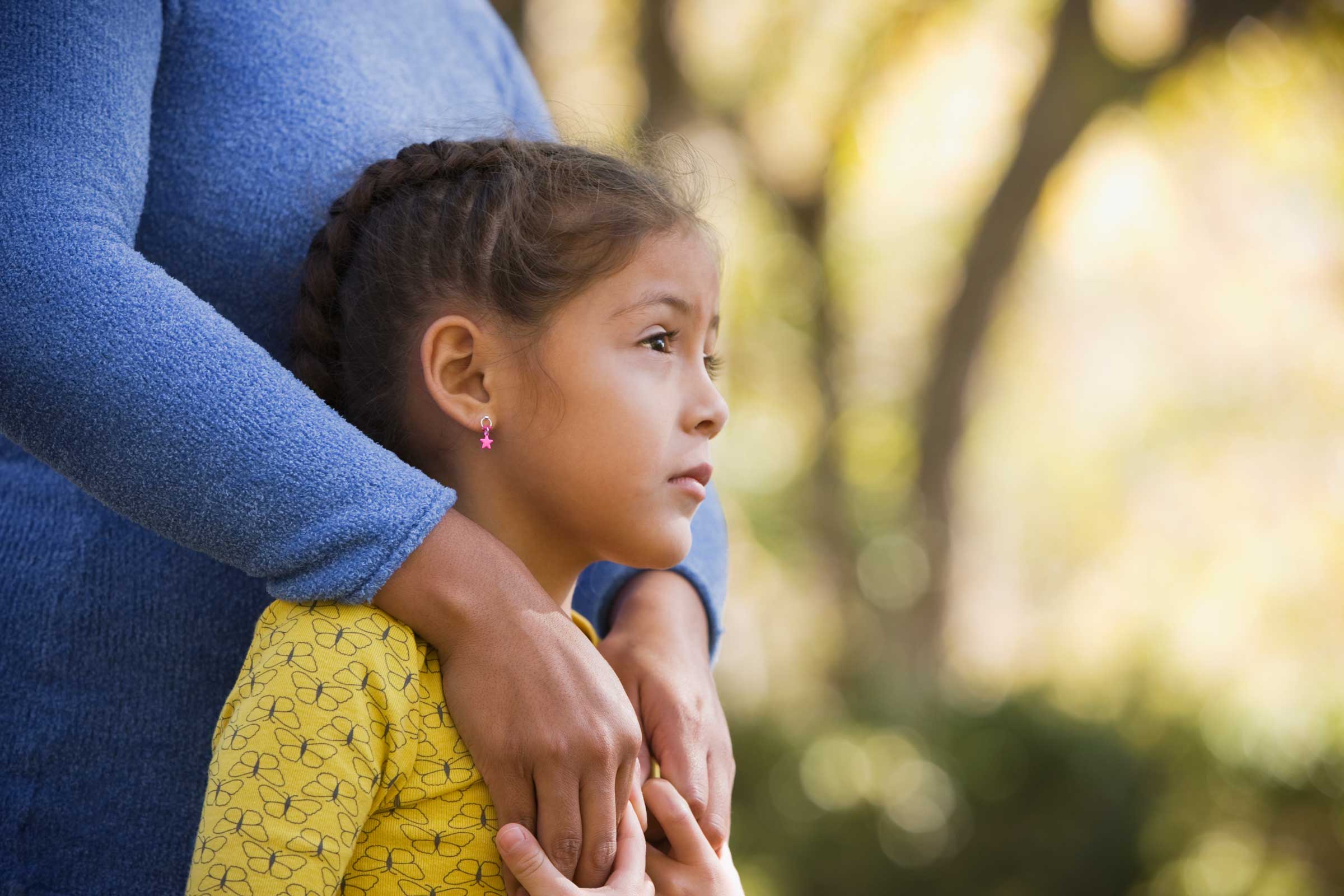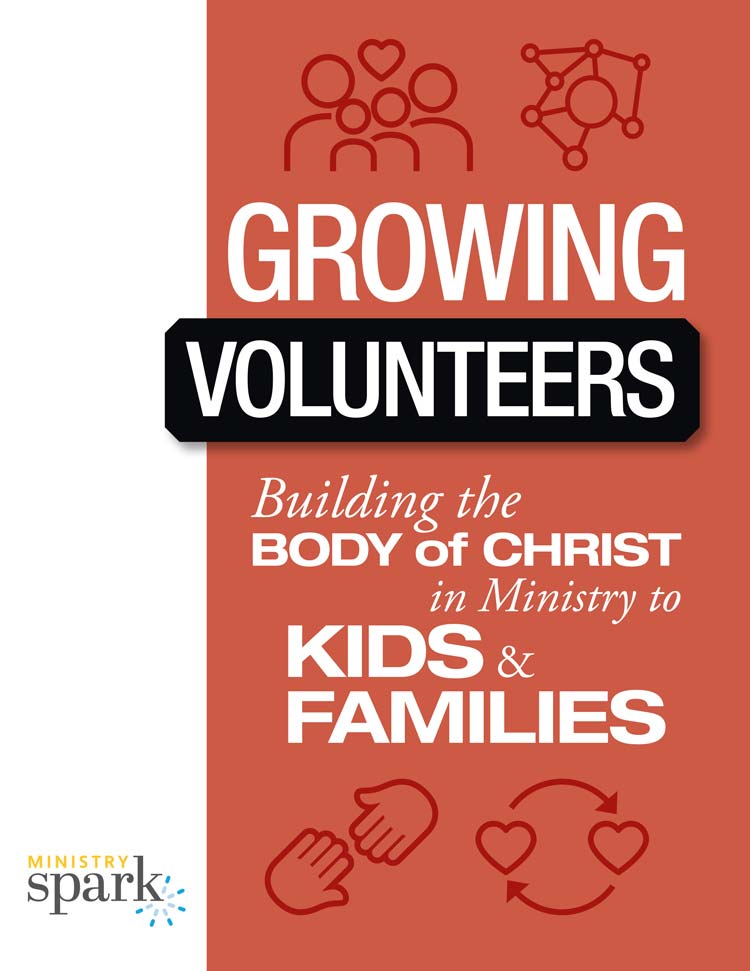Trauma-informed children’s ministry can be hard.
“I don’t know my dad.”
It was Father’s Day, and Wren’s voice rose just above a whisper as our pastor recognized the dads in the room. Wren (her name has been changed for privacy) had been my buddy on Sundays for a couple of years.
At 10:30 each week, she ran through the sanctuary to find my family, wrap me in a hug, and settle into the seat between me and my husband. When we stood to sing, she drummed along to the beat on the back of the chair, staring at the drummer through the whole song. She recited the Apostles’ Creed with her eyes closed to show my son that she had it all memorized.
Wren rode the church van along with about 20 of her neighbors, so she could join us. And because she didn’t have a guardian in the building, she was my family’s buddy each week.
When she first started attending our church, Wren’s furiously clenched fists and angry eyes lasted through the entirety of the service. Occasionally, her anger found its way out with a shout and a well-placed insult.
All she wanted was to exert some control over her environment.
And all we wanted was for her to feel safe, seen, heard, and loved.

Trauma-Informed Children’s Ministry
If your church resonates with the desire for every child to experience safety and belonging, then you’ve already taken the first step toward creating a trauma-informed ministry. The good news is, you don’t need to be a therapist or have a massive church building to get started.
What you do need is the work of the Spirit: a heart full of love, joy, peace, patience, kindness, goodness, faithfulness, gentleness, and self-control. What a wonderful realization, then, that what’s needed for you to begin is a gift from God.
All we wanted was for her to feel safe, seen, heard, and loved.
Where to Begin in Trauma-Informed Ministry?
But what’s next? How does your church move beyond a desire to provide a safe place for children and into effectively welcoming kids who have experienced trauma as they are?
As your church embraces the opportunity (and responsibility) to become a sanctuary of safety and belonging for all kids, it’s important to begin by recognizing the effects of trauma in our communities. Two out of three children will experience at least one traumatic event before the age of 18. One in four kids aged 4-17 have clinically elevated depression symptoms. One in five have clinically elevated anxiety symptoms.
Events like child abuse, neglect, divorce, and domestic violence contribute to these statistics, but any threatening event or situation can be potentially traumatic for a child.
Trauma is often invisible. A child may come into your church with a smile on his face while also carrying grief, fear, or crippling shame. Many children who have experienced trauma will not tell you about the burden they bear … but they will show you through their behavior.
They might push people away, react with troubling outbursts, or refuse to comply with expectations. Trauma doesn’t always walk in with a diagnosis—it walks in needing safety and belonging.
When the Church recognizes these realities, we can start to shift from seeing behavior as a problem to identifying behavior as a signal. Meltdowns and disengagement become signposts for us to read: Am I safe here? Do I belong here?
Three Key Steps for Trauma-Informed Children’s Ministry
While it can certainly feel overwhelming to imagine a trauma-informed children’s ministry, let me encourage you to trust in the slow work of God. Small, intentional steps can make a Kingdom-sized impact over time!
Am I safe here? Do I belong here?
Here are some quick ideas to help you get started:
1. Equip and Protect Your Church
Trauma-informed ministry is proactive, not reactive.
How do your church’s leadership and volunteer teams respond when a behavior crisis arises? What about a safety concern? Is there a plan in place to protect the emotional and physical safety of everyone involved?
Rather than waiting for a crisis to occur, build a system that actively prevents harm. Start with questions like:
- Are the adults interacting with our kids background checked, reference checked, and fully trained on appropriate protocol? (Renewals should occur regularly—ideally, no more than two years apart.)
- Are all ministry areas open and easy to view? Are we above reproach in our interactions with vulnerable children?
- Do our children and caregivers know our policies, and are they welcome to voice their concerns to leadership?
2. Prioritize Emotional Safety
Safety isn’t just about having check-in systems and procedures (though these absolutely matter!). Emotional safety is of equal importance.
How do kids feel when they enter your worship space? How are they treated when they make a mistake or have a meltdown? Are they shamed? Or are they supported?
Start with questions like:
- Is there somewhere for our kids to go when they feel overwhelmed? Is there a process for them to “check in” about how they’re feeling?
- Are our volunteers trained to respond to a child’s need rather than react to their behavior?
- Do we give our children agency at church, or are they expected to comply without question?
3. Learn the Language of Behavior
When a child is feeling afraid, out-of-control, rejected, or worthless, they are not likely to express that feeling with words. Instead, they communicate their feelings through their behavior.
In trauma-informed ministry, we can learn to interpret these behavioral signs and ready ourselves to respond to the need expressed. Start with questions like:
- When a behavioral outburst occurs, are we curious and solution-seeking, or are we judgmental and punitive?
- Does my church’s team feel empowered to address behaviors with flexibility and calming strategies?
- Can we recognize what a behavior might be telling us about the deeper need in this child’s heart?
Beginning the holy work of welcoming children who have experienced trauma can feel like a daunting task, but it begins and ends with this small shift:
When we question, “What’s wrong with them?”
We can instead wonder, “How can we best love them like Jesus?”
Faithfulness to the Compassion of Christ
Regardless of where we begin, we are asked for faithfulness. What a gift God has given to your congregation in caring for hurting kids. Be faithful to that calling.
We can instead wonder, “How can we best love them like Jesus?”
Pursue what God might be up to in this time and space—and follow Jesus’ lead in welcoming the least of these into your midst. With trauma-informed children’s ministry, begin with one change:
- Plan one training session.
- Add one calming strategy to your toolkit.
- Try one emotional check-in routine with your Sunday school group.
One step at a time, your church can draw closer to the heart of Jesus.
As Paul reminds us in his letter to the Colossians, we can bear witness to the compassion of Christ as we are “… clothed in compassion, kindness, humility, gentleness, and patience.”
Compassion is the response.
Kindness is the response.
Humility, gentleness, and patience are the response.
Wren and her neighbors have stretched my church. We have ached and groaned as we experience the growing pains of learning this way of compassion.
And while we are far from perfect in our ministry, we are committed to the work that the Spirit is doing in our midst. Remember, you are not alone, nor are you carrying the burden of transformation within your own power. This is the work of New Creation—we get the privilege of joining in the work God is already doing among us!
To explore training resources, free downloads, and next steps for your church, visit reachhurtingkids.com/workshop, or email us at [email protected].

Growing Volunteers: Building the Body of Christ in Ministry to Kids and Families

Growing Volunteers: Building the Body of Christ in Ministry to Kids and Families

Growing Volunteers: Building the Body of Christ in Ministry to Kids and Families
Helpful Articles on Anxiety
- Practical Ways to Navigate a Hyper-Anxious World: Introduction (Part 1)
- Practical Ways to Navigate a Hyper-Anxious World: What Causes Anxiety (Part 2)
- Practical Ways to Navigate a Hyper-Anxious World: A Matter of the Brain (Part 3)
- Practical Ways to Navigate a Hyper-Anxious World: Tools to Help (Part 4)
- Practical Ways to Navigate a Hyper-Anxious World: Restoring Power (Part 5)
- Practical Ways to Navigate a Hyper-Anxious World: Conclusion (Part 6)










